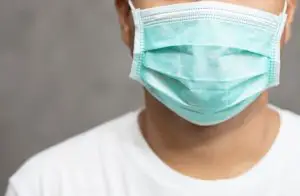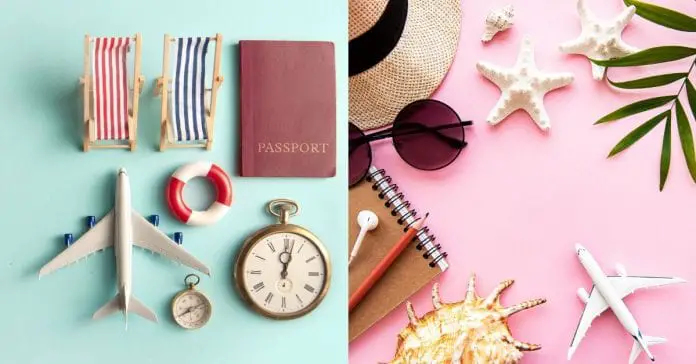While we’re all impacted by the Covid-19 pandemic, the airline, travel and hospitality industries are undoubtedly hit the hardest. As we all know, travelling is absolutely out of the question right now. One day, we will be able to travel again, but things may be drastically different by then. If you’re planning your next travels already, you may want to read on to see how travelling after Covid-19 could be different.
1) Contactless Technology
Right now, a physical passport is still the main identification for travellers. Typically, there are many contact points at airports, ranging from check-in, immigration and security. However, the current situation calls for limited physical contact. Therefore, there’s a possibility of digital travel credentials, or the use of biometrics, where physical fingerprint and hand scanners are phased out. Other touchless data entry such as contactless document scanning and voice commands are also being tested. Basically, as much as possible, airports will be automated.
2) Possible Longer Queues
You thought waiting in line at airports was unbearable before this? It could get worse, actually, especially at immigration. Countries will be on high alert to prevent imported cases, and there could be on-site testing to make sure travellers are virus-free. Furthermore, there could be “sanitisation points” throughout the airport as well, and all these things would take time. Of course, we don’t know what it will be like for sure, and it may differ from airport to airport, but this seems like a pretty high possibility.
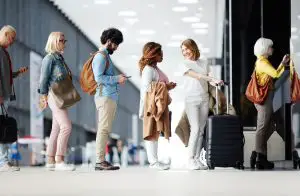
3) More Identification/Documents
In addition to your passport, you may need to travel with health certificates or certificates of immunity. Nobody really wants to take a chance with Covid-19, so you’ll need those to prove that you’re safe and fit to travel. Also, travelling could still be limited, and you may need to state your purpose of travel, which likely means another document again. Even if you get to travel for leisure, there could be a temporary visa or other documents that deem you safe to travel.
4) Airlines Could Switch To Air Cargo As Core Business
Many airlines have gone bankrupt. Those who are still around need to figure out ways to stay afloat. Some of them have converted their passenger aircrafts into freighters, as it is literally the only source of income for them now. When air travel is resumed, it is unlikely that many will want to fly immediately due to various reasons. In other words, passenger count could still be at an all-time low. Put it this way: the more cargo revenue an airline has, the more they can keep passenger fares at a reasonable price and attract passengers again!
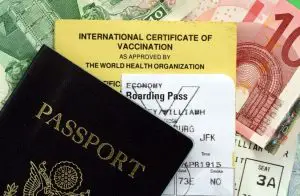
5) Travellers Could Opt For Remote Destinations More
Yeah, forget crowded cities for a minute. Most of us would want to avoid large crowds for a while, and that could redirect tourists to more isolated destinations. Rome is good and all, but have you seen the crowd at the Trevi Fountain on any given day?
6) Health First
Oh, yeah. You’d be wiping everything down before you settle down in your seat. In fact, even your carry on essentials may be different. Obviously, it would be the hand sanitiser, mask and alcohol wipes combo you’d bring on board. For long-haul flights, airlines may even look into relaxing the 100 ml liquid rule, because passengers may want to bring more hand sanitiser with them.

7) Fares May Be Expensive
May, because reports and experts are divided. On one hand, if air tickets are expensive, who will want to buy them? On the other, due to limited seats (social distancing), if airlines don’t charge more, how will they survive? Furthermore, various factors such as country laws and ongoing pandemic conditions could influence travel windows, and this scarcity could affect air fares as well.
8) Travel Insurance Sales May Spike
You’ll need all the protection you can get while travelling, and travellers will be more likely to get travel insurance after this. They may even have a good, long chat with their agent about what exactly it covers, and really look into their policy to know what’s going on. Previously, it was an afterthought, with some completely forgetting about it.
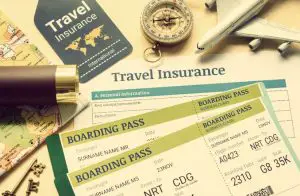
9) Advertising Air Quality
Wouldn’t you like to know if the air in the cabin is like, safe to breathe? We would! Air quality will be an important factor in helping potential travellers if they want to fly, and airlines are likely to boast about their filters and air quality to attract customers.
10) Quarantines Could Become The Norm
Until a vaccine is developed, government-mandated quarantines could be in place upon arrival or re-entry. This could be a huge turn-off, as people generally do not want the hassle of the quarantine every time they fly. Those with limited days off work are likely to opt out, so ideally, organisations and governments could come up with a way around this to ensure safe yet fuss-free travelling.
